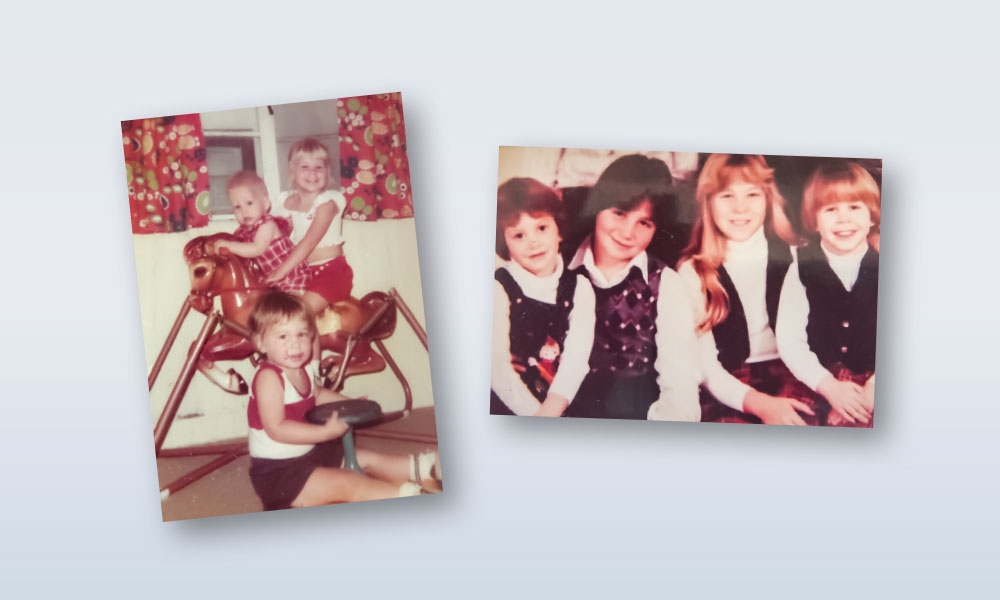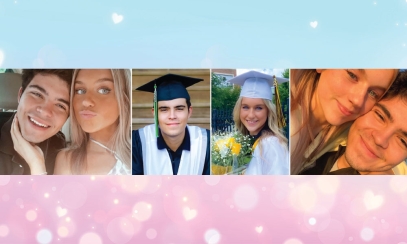
Revisiting the unthinkable
It’s been nearly 50 years since my 2-year-old son, Brian, died from cancer. My long-time friend Mark sent me a note out of the blue recently, which serves as evidence that memories such as these don’t fade.
It’s been nearly 50 years since my 2-year-old son, Brian, died from cancer. My long-time friend Mark sent me a note out of the blue recently, which serves as evidence that memories such as these don’t fade.
“Dear Tom: Memories of yours and Sue’s anguish during Brian’s short life recently came to mind … along with tears to my eyes. I have experienced nothing in my life that compares to the loss of one’s child. Your and your wife Sue’s handling of that tragedy has been exemplary. Periodically, when I reflect/pray … regarding my godson, memories of this event come to mind — at least for a moment.”
His message brought up many emotions and stories I’d not thought of for a while. I wrote back.
“Dear Mark: It is consoling to know that you still occasionally think of Brian, as well as your relationship as godfather to him. The death of a child is one of those many things in life that you think you can’t handle until it actually happens, and then you find out that you CAN handle it. … Indeed, tears still threaten when certain memories arise, like the time near the end of Brian’s life when his 3-year old brother [Danny] — only 16 months older than Brian — was aggravated with me (justifiably, I’m sure) for something that led him to say, ‘You’re a bad daddy.’
“Brian was listless, yet intently listening to the interaction between his brother and me at the kitchen table. When Brian heard the ‘bad daddy’ comment, he somehow summoned up enough energy to lower his frail fist firmly to the table and say softly, but sternly, ‘No. He’s not a bad daddy. He’s a good daddy.’ … So, thanks, truly, for the trip down memory lane. Now, handkerchief, please.”
Flashback to 1976
My wife Sue spent weeks at Children’s Hospital in Cincinnati, while the other children stayed with grandparents there. I had to go home to North Carolina to teach college and finish a house we were building. I traveled back and forth on weekends.
From the beginning, Brian was given a 5% chance of survival. We tried traditional and experimental treatments. Nothing worked. Eventually, we stopped treatment and brought Brian home to hopefully go peacefully to God surrounded by his familiar settings.
Reflections and lessons learned
Our correspondence provides a glimpse into what it was, and still is, like to experience the unthinkable — the death of a child. Unfortunately, I’m sure many of you who are reading this have experienced similar situations or worse. I know this because people came from out of the woodwork to console us with their own losses and how they empathized with us.
Many lessons were learned due to the loss of Brian and much good actually came out of it, along with considerable consolation in the end. A few lessons we learned: the “stages of grief” that everyone goes through in the face of death helped a lot in understanding our own thoughts, reactions and behaviors at the time. Going through this loss enabled my wife and I to help others through teaching, writing, our clinical work as a psychologist and a nurse, and working with organizations such as The Compassionate Friends. And, just like pressure makes diamonds, marriages can be made stronger by struggling through stresses together.
All this is to say that the unthinkable can happen; it happened to us, and it could happen to you. But we handled it, and you could, too, even emerging stronger on the other side.



